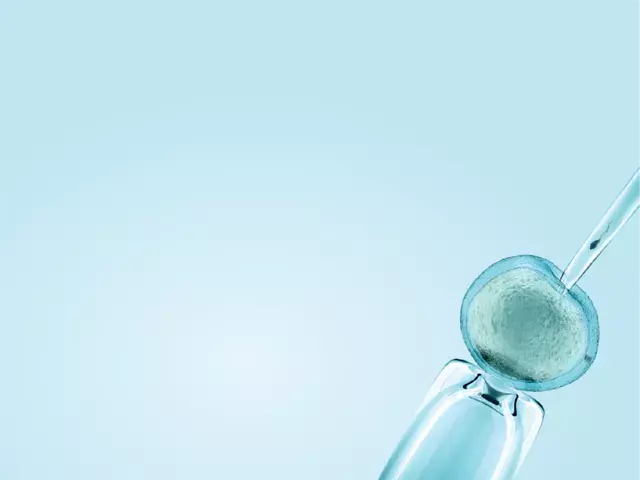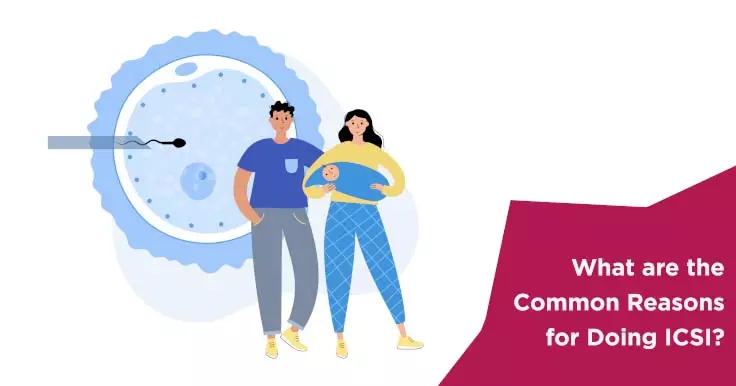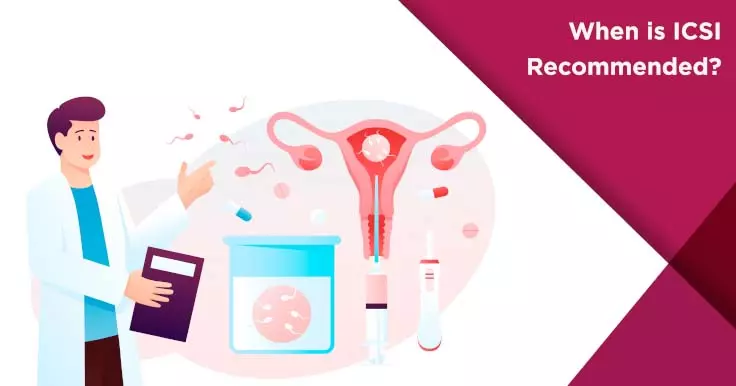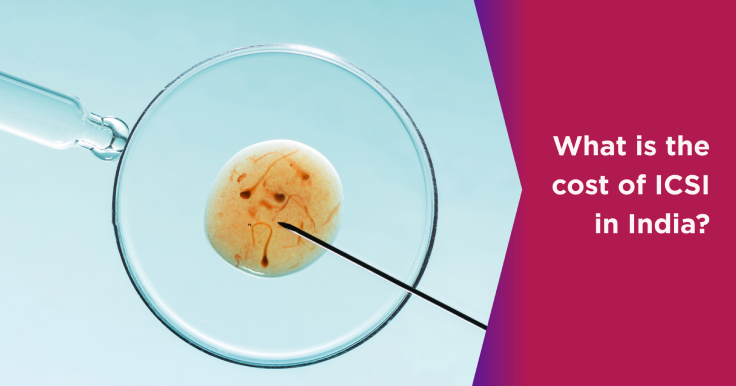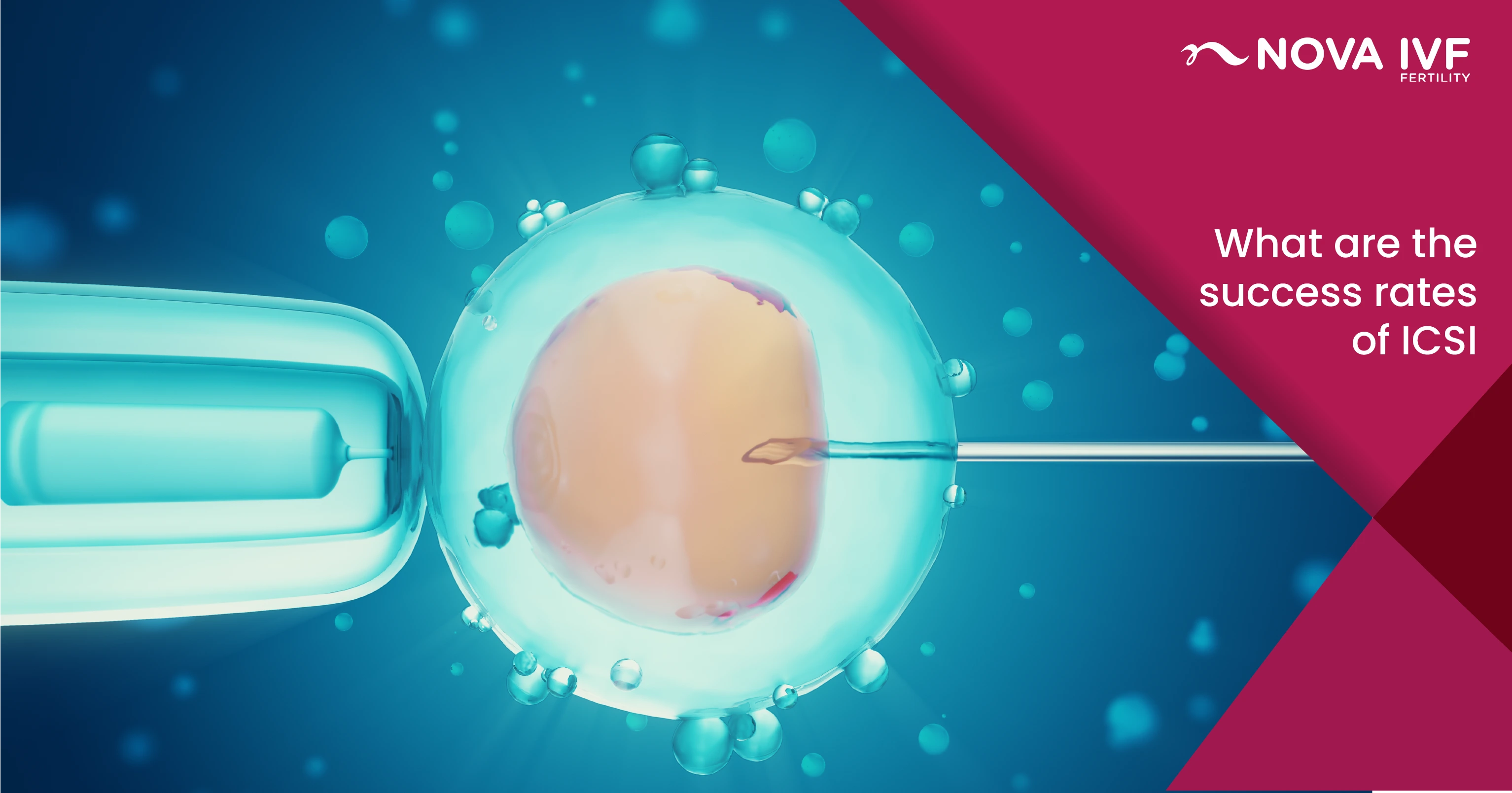About Intracytoplasmic Sperm Injection (ICSI)
This is a specialised type of assisted reproductive technology procedure known as Intracytoplasmic sperm injection (ICSI). ICSI is performed with the help of a technique known as micromanipulation. This involves the use of very fine surgical tools and a high-powered microscope. During the procedure, a sperm is placed into a woman's egg with a needle in a clinical or a lab setting. A sperm cell is directly injected into the egg or oocyte’s cytoplasm to develop an embryo or a fertilised egg. The procedure is a type of IVF treatment.
Usually, doctors use the ICSI treatment along with IVF and the next day, the doctor checks to see if the egg is fertilised. The fertilised eggs are observed carefully as they develop over the following days until they become embryos with multiple cells. These embryos are then placed into the woman's uterus by the doctor.
Most embryo transfers are now Frozen Embryo Transfers. This means that the embryos can be re-frozen and later thawed before transfer. The step enables more control over the timeline and can lead to higher success rates than a direct embryo transfer. This way, aspiring parents can freeze and store any remaining best-quality embryos for future use and sibling journeys.
When Is ICSI Performed?
Intracytoplasmic sperm injection is the most common and successful treatment for male infertility. ICSI is recommended in the following cases when:
- Men have an extremely poor sperm count (much lower than 20, 000,000 sperm per millilitre of ejaculate
- Men are experiencing issues with sperm motility (sperm movement)
- Men are facing problems with sperm development
- Men have a high incidence of antisperm antibodies that attack and damage sperm in their semen
- Poor quality and quantity of sperm in the frozen sperm sample
- Men have blockages that prevent sperm from being ejaculated, like after a vasectomy
- Couples are aiming to increase the number of high-quality embryos obtained from a single egg retrieval
Did you know that ICSI can also be performed when the sperm count of a man is as low as 1 or 2 million/ml?
ICSI Process
When in vitro fertilisation (IVF) is used with intracytoplasmic sperm injection, the procedure allows otherwise sterile couples to become parents. ICSI treatment follows these steps:
- Ovarian Stimulation
As with regular IVF, the woman will first need to take fertility medication to stimulate the production of eggs in the ovaries. During this time, the doctor will monitor the development of the eggs. The ICSI procedure is performed when the egg is ready to be retrieved. Medications are used to stimulate the ovaries for about 8 to 14 days to produce many mature eggs, increasing the chances of success.
- Retrieval of sperm and eggs
During this stage, a doctor performs the procedure to collect eggs from the ovaries. The eggs are combined with the collected sperm for fertilisation.
The man will have to produce a sperm sample ejaculating into a cup, or the sperm will have to be surgically retrieved. There are a number of different ways the sperm may be retrieved. In some cases, the sperm retrieval procedure may be performed earlier, and the sperm may be frozen.
Multiple eggs will also be harvested from the woman’s ovaries using a fine needle and ultrasound probe. This procedure is not painful, but it may cause slight bruising and soreness.
- Fertilisation
Once retrieved the semen sample is washed and a single sperm is isolated. This is then injected into an egg with a very fine hollow needle. The embryologist injects the best quality sperm into each mature egg under a microscope.
Since the sperm is injected directly, it bypasses the need to swim through the cervical fluid. It can take a sperm up to 24 hours to fertilise an egg and create an embryo.
- Embryo Development
The fertilised embryos are kept in a lab for about 3 to 6 days. During this time, they are monitored for signs of growth and development. Not all the fertilised embryos will be transferred to the woman’s uterus. Hence this step is essential to pick out the healthiest and most viable embryos.
- Embryo Transfer
Once the embryo has reached a certain stage of development, one or two embryos are selected and transferred to the woman’s womb using an ultrasound-guided catheter. This may happen 2 days after fertilisation or 5 days after fertilisation. The embryo transfer is a simple procedure lasting about 5 minutes.
- Pregnancy Test
Two weeks after the embryo transfer, a pregnancy test is done to check for pregnancy.
Benefits of ICSI Treatment
The primary advantage of the ART treatment like intracytoplasmic sperm injection during IVF (IVF ICSI) is an enhanced fertilisation rate, which can increase the number of fertilised eggs available for transfer or freezing. For couples struggling with male factor infertility, ICSI treatment can boost your chances for a successful fertilisation under standard insemination such as IUI. ICSI is effective for those looking to increase their high-quality embryos created from one egg retrieval. Men who don’t have issues with sperm development, sperm count, or sperm motility can still benefit from ICSI. Also, couples with failed previous IVF attempts may benefit from ICSI treatment. Additionally, couples who want to test for certain genetic problems often make good candidates for ICSI treatment.
Potential Side Effects of ICSI
Like any other surgical process, ICSI also has some risks associated with it. Some of the potential issues that could arise are:
- The egg may be damaged
- The embryo may not grow and develop after fertilisation
- In rare cases, it may lead to genetic defects.Most birth defects are due to the poor quality of sperm and NOT due to the procedure of ICSI. Most of these are minor defects of urogenital system which can be surgically corrected post birth of the child.
Your fertility doctor should be able to guide and prepare you through the process.
Elective Single Embryo Transfer (eSET)
Multiple pregnancies are one of the most common risks associated with IVF. To prevent this, many women choose to have a single egg transferred back to the uterus. This is known as Elective Single Embryo Transfer or eSET. In such cases, the doctor will wait until the embryo has reached a blastocyst stage. If you have extra good-quality embryos, they may be frozen and kept for later use in case the IVF cycle is unsuccessful.
From here on the procedure is the same as a normal pregnancy. The embryo must attach itself to the walls of the uterus and continue to develop. A pregnancy test is usually advised two weeks after the fertilised egg has been transferred to the womb. It is important to note that the fertilisation rate of IVF with ICSI is much higher but the success rate of IVF with ICSI and IVF without ICSI is the same.
How do you prepare for ICSI Treatment
Before ICSI treatment can begin, the fertility team collects the sperm and eggs. The egg retrieval process entails ovulation induction, where medication injections stimulate the ovaries, which results in mature eggs. At this stage, Transvaginal ultrasound technology is used to guide a needle into the ovaries to collect the eggs, with mild anaesthesia to ensure that the patient is comfortable. Also, the sperm collected is analysed for mobility, volume, and quality. In certain cases, procedures like microscopic testicular sperm extraction or electroejaculation may be necessary, and the sperm can be frozen and stored for future use in IVF.
How much does ICSI cost?
The price of ICSI fertility treatment typically starts at Rs 1,50,000, but it may vary depending on the fertility hospital you choose. In general, ICSI treatment in tier I cities is more expensive than in tier II and III cities for infertility treatment.
 Infertility Counselling
Infertility Counselling Female Infertility Treatment
Female Infertility Treatment Andrology Treatment
Andrology Treatment Fertility Enhancing Surgeries - Female
Fertility Enhancing Surgeries - Female Fertility Enhancing Surgeries - Male
Fertility Enhancing Surgeries - Male Endoscopy Treatment
Endoscopy Treatment IUI Treatment
IUI Treatment IVF Treatment
IVF Treatment ICSI Treatment
ICSI Treatment Advanced IVF Solutions
Advanced IVF Solutions Embryology
Embryology Vitrification Egg, Embryo, Sperm Freezing
Vitrification Egg, Embryo, Sperm Freezing Preimplantation Genetic Testing (PGT)
Preimplantation Genetic Testing (PGT) Donation Program Embryo / Egg / Sperm
Donation Program Embryo / Egg / Sperm Self-cycleTM IVF
Self-cycleTM IVF

 Self-cycleTM IVF
Self-cycleTM IVF